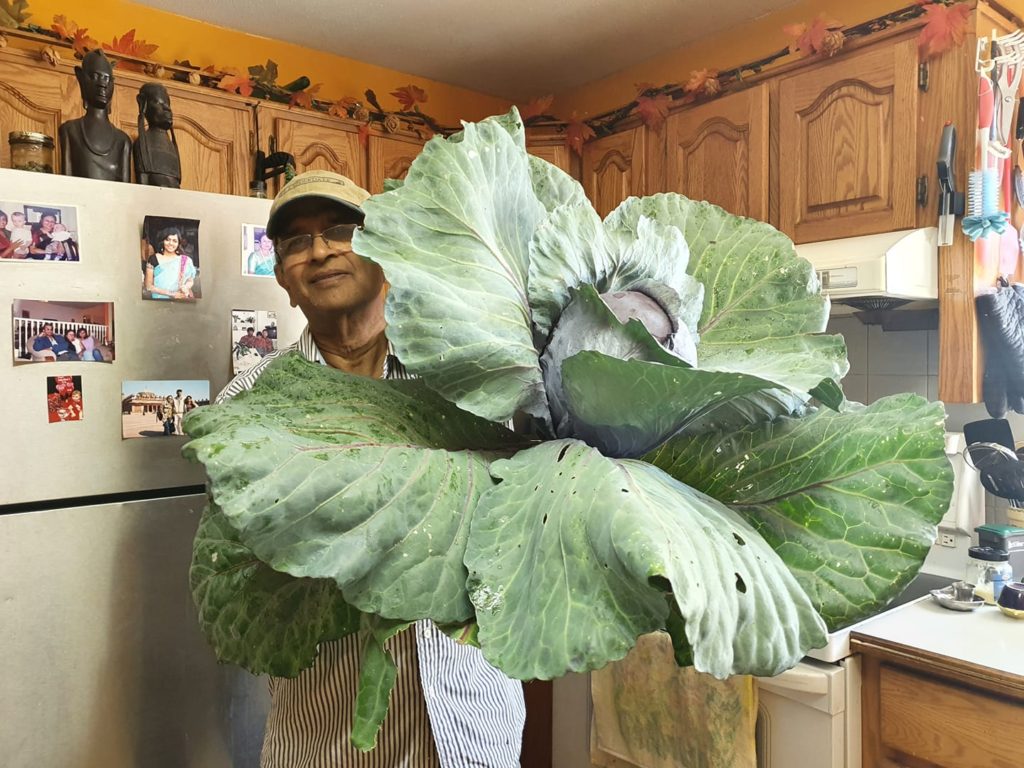
This is the first time I succeeded in germinating cabbage, cauliflower and broccoli from seeds in numbers, and same time managed to grow them to big size without pest attack. The pest attack issue was so serious that I had almost given up on them. But finally I learned to rig taken copper wires along my raised beds, attached to a 9V battery, causing an electrical barrier to slugs, and same time designing giant mosquito nets to prevent moths from laying eggs on the leaves.
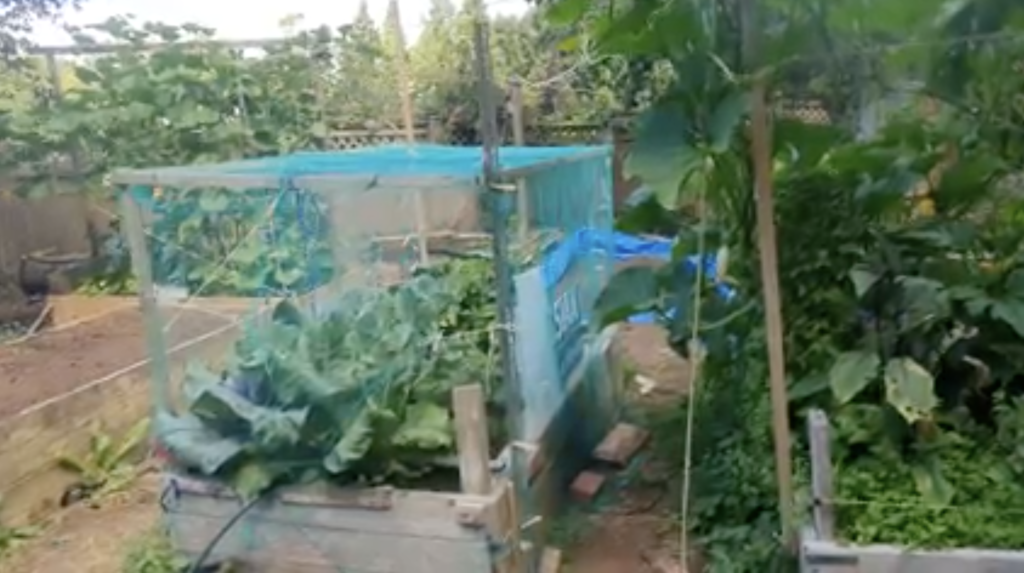
This resulted in me getting a great harvest as the vegetables got really big and strong. The bed itself has unique soil combination – wood at bottom, leaves and grass mulch above it, and finally a relatively thinner layer of soil and compost. No artificial chemical, no industrial fertiliser or pesticide.
Initially, I had a mosquito net that was smaller and hanging off ropes. Which I later modified to be taller, more robust with a wooden frame.
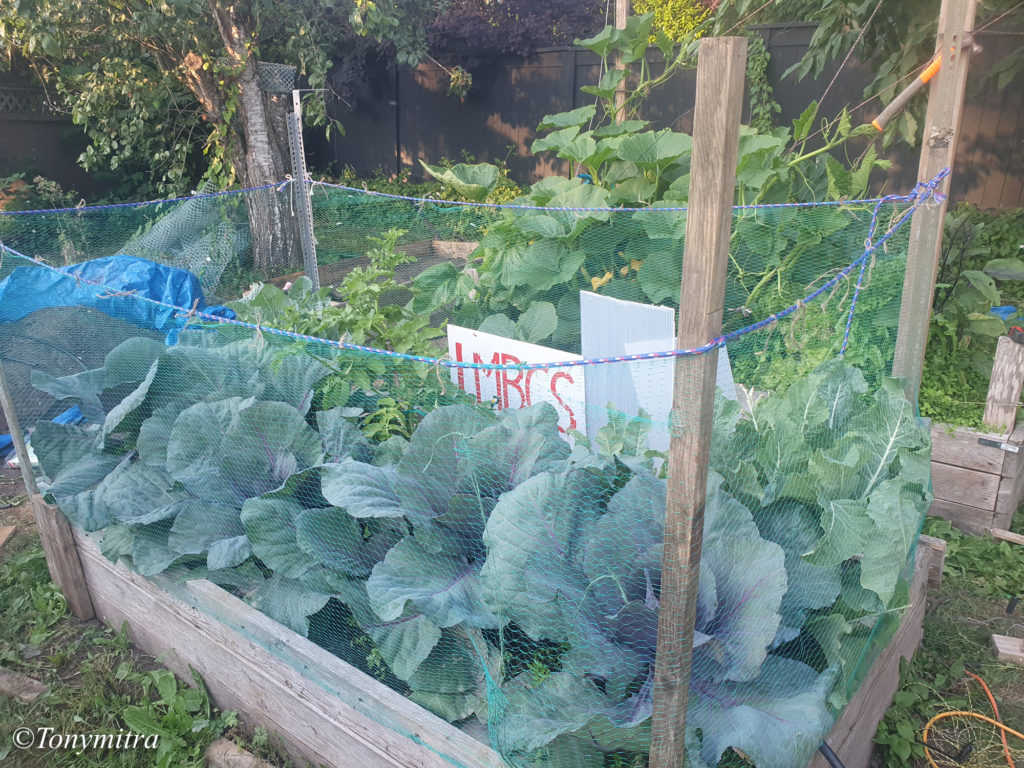
The experiment did give me great cauliflowers and cabbage.
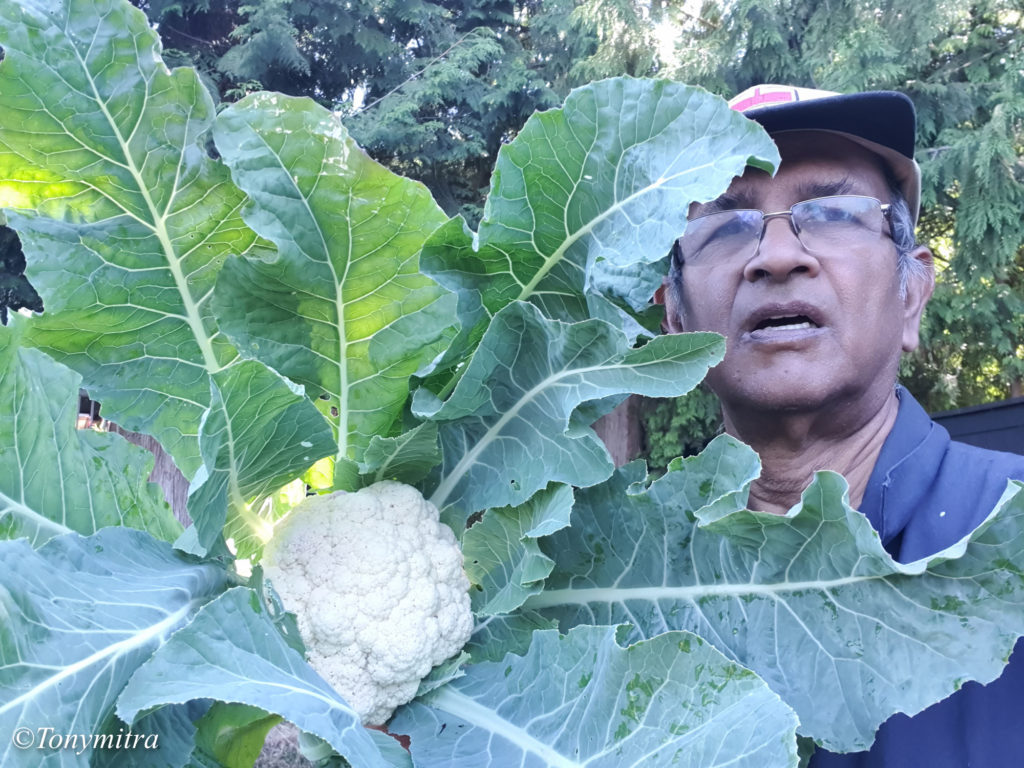
I have harvested all the cauliflowers and one cabbage so far. I took a good look at them and investigated their leaves etc. I noted presence of small colonies of aphid eggs and pupae, but all dead. None were apparently able to penetrate the skin of the leaves or puncture the veins and suck the juice of of the leaves, weakening the plant, which would result in relatively stunted growth.
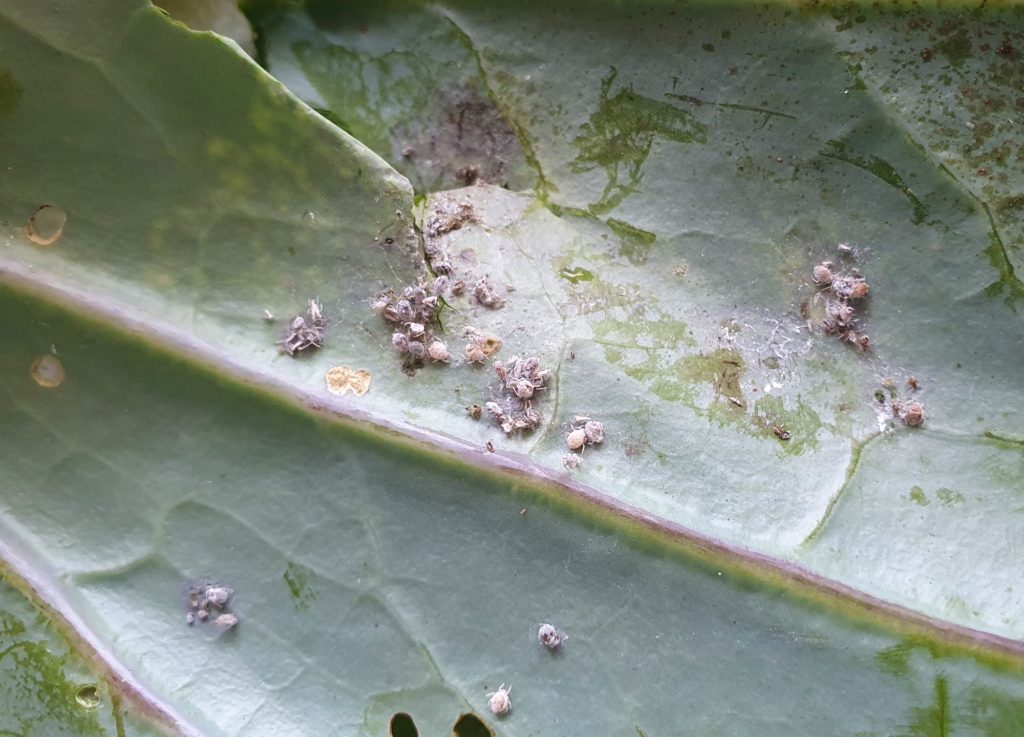
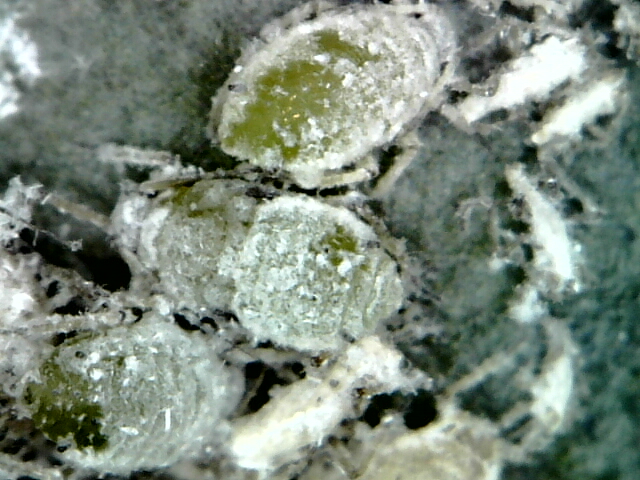
But that did not happen. The aphids and pupae were all dead, without being able to hurt the plant much.
The question was – why?
Some folks use spray solution of Neem oil and water, or detergent and water. I did not use any.
Some use insecticides. I never use them since these would not only kill the insect, the poison would get into the vegetable and eventually into us.
Some plant beneficial plants that either attract the aphids, thus sparing my vegetables, or are so repugnant that they keep aphids away from my plants. I have planted neither kind near or far from my vegetables.
So why did the aphids not manage to lay eggs in many places, and why did these few that did land up on the underside of a few cabbage leaves, did not succeed in causing much harm?
I do not know the answer, but I suspect I was helped by beneficial insects, that like to lunch on this aphid eggs and pupae. I know I have a huge colony of all kinds of insects in my garden, most of these are unknown species to me. I knew the greater ecosystem needs all these to exist and interact with each other, and some of them are harmful to some others. I was not interested in killing any of them unless I knew some where harming my vegetables.
It is my belief that this insect world in my garden did include some unidentified beneficial insects that kept the aphids in check. I now believe that insecticides etc cause more harm to the insect ecosystem, and harmful insects such as aphids learn to survive or sidestep these poisons better than other beneficial insects. Therefore not using poisons and keeping the garden healthy and organic, has a curious side benefit – indirectly keeping my vegetables protected – not unlike our own microbiome bolstering our own immunity.
At least, this is what I think is the reason why I managed to have giant cabbages and cauliflower without using any insect killer.
